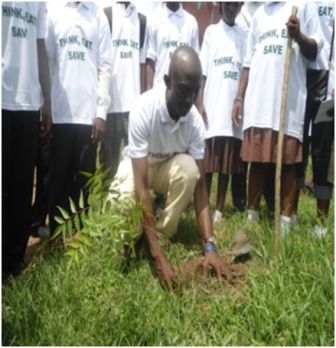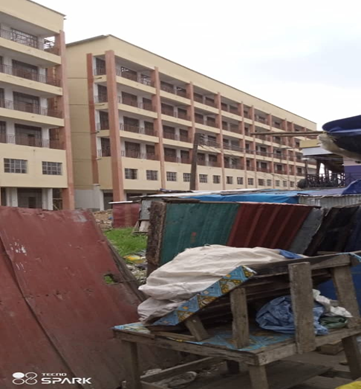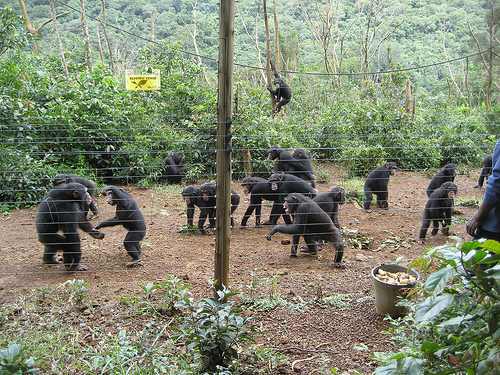13 African Nations at “Power Kick for Africa” Conference in Abuja
“Women should be at the Forefront of the Energy Revolution”
ABUJA, Nigeria, July 1, 2011 — Access to cleaner, more affordable energy for their people is a current priority for many African Nations. 70 participants from 13 African Nations – policy makers as well as representatives from business and civil society – discussed the topic of renewable energy on an international conference from 30th June to 1st July in the Nigerian Capital Abuja. In sessions on policy, technology, project development, finance and African leapfrogging participants exchanged experiences in best practices as well as best policies. The conference was arranged by the African Renewable Energy Alliance (AREA).
The “Power Kick for Africa 2011” conference shed a spotlight on the linkage of energy and gender. Hon. Ms. Elizabeth Thabethe, Deputy Minister, Department of Trade and Industry, Republic of South Africa, said: “A change in energy production paradigm is necessary, and women should be at the forefront of the energy revolution. Women of the continent should be champions of this new energy production paradigm that promotes the utilization of clean energy sources.”
Few African women have access to electricity. In Nigeria about 70 percent of households in both semi-urban and urban areas are using firewood as a primary cooking fuel. Currently, cooking with firewood causes about two million deaths each year around the globe, with approximately 400.000 in Africa. Gender as a main determinant that defines access, ways of utilization, opportunities and control over all energy resources was also a highlight at a ‘Solar-Powered Screening’ of the Women’s Football World Cup match between Germany and Nigeria on 30th June organized by the World Future Council together with Bosch Solar Energy and the Heinrich Böll Foundation Nigeria.
The intention of the “Power Kick for Africa 2011” conference is to fill the gap between policy and best practice. “What exactly is needed in order to foster renewable energies in Africa? We want to identify concrete implementation possibilities for the participants,” says Ansgar Kiene, Director Africa Liaison Office of the World Future Council and conference organizer.
Inspiring policies that accelerate the uptake of renewable energies motivate countries that still lack behind. Representatives from Uganda and Kenya like AREA-member Joseph Nganga, Renewable Energy Venture Kenya, show how a locally designed Feed-in Tariff-legislation can push the uptake of renewable energies. Feed-in Tariffs are perceived as one of the best policy for grid connected areas. African countries can set the right framework to guarantee energy producers have access to the grid. “We don’t need megatalk. We need Megawatt” said Chidi Izuwah, from the Infrastructure Concession Regulatory Commission of Nigeria. The country set an ambitious target to achieve 20 percent renewable energy in a long term.
The financial incentive legislations from Cape Verde gave a good example of how renewable energy can make electricity affordable for more people. A kilowatt hour electricity from the conventional system costs now 25€ Cent in the country, whereas wind energy provides it for only 12 € Cent.
Conference participants also clearly stated that Africa does not only need sustainable policies and future just legislations. Action and implementation on the ground is needed – to trigger a mind change of the consumer and to push policy makers to scale best practices up to a best policy. By presenting community based examples, the conference raised awareness for applicable and people oriented
policies. Yahaya Ahmed from the Developmental Association for Renewable Energies Nigerias shared his experiences with the SAVE80 project, a highly efficient cooking stove, with 80 percent savings on fuel wood compared to traditional stoves. The Save 80 Project is the first SSC-CDM project activity in Nigeria and the first, applying the methodology AMS II G, to get registered worldwide.
“The energy landscape of millions of Nigerian women looks like that: no access at all, besides her own physical power and the battery inside her torch. They have a low carbon footprint and a low life expectancy”, says Christine K., Director, Heinrich Böll Foundation Nigeria. Better health, education, quality of life – African women can disproportionately benefit from electrification. Access to energy can improve women’s social, economic and political status, reducing the time and effort involved in household chores, providing better health and educational conditions, expanding income-generating opportunities, and easing their participation in public affairs.
Distributed by the African Press Organization on behalf of the World Future Council
Stay with Sierra Express Media, for your trusted place in news!
© 2011, https:. All rights reserved.






